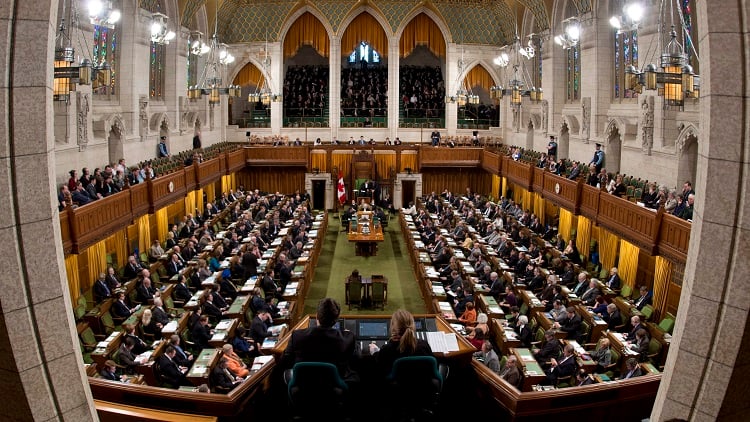The Parliament candidate
The Conservative-turned-Independent goes Liberal
Adrian Wyld/CP
Share

Former Conservative-turned-Independent MP Bill Casey announced a new pursuit of elected federal office yesterday with the following announcement:
Former member of Parliament Bill Casey will be seeking the Liberal nomination to be the candidate in the upcoming federal election for the riding of Cumberland Colchester.
Casey said, “There are several reasons for my interest in re-entering politics, but the issue that has motivated me to act now is that I want to add my voice to those very credible people who are raising the alarm about the declining state of our parliamentary system. I believe that those of us who have experienced this deterioration first-hand have an obligation to speak out.”
“It is clear that the current government has distorted or rendered useless many of the tools that members of Parliament have used to successfully represent Canadians for 147 years.
As Sheila Fraser, former auditor general said, “Parliament has become so undermined, it is almost unable to do the job that people expect of it.”
Casey agrees and goes further. “The first four prime ministers (two Progressive Conservatives and two Liberals) I served under respected the role of Parliament and of parliamentarians. The current government does not.”
For instance, when complicated omnibus bills are introduced, it is impossible for MPs to represent the interests of the constituents who elected them . . . a fundamental principle of our democracy.
C.E.S. Franks, author of “the Parliament of Canada,” said, “These omnibus budget implementation bills subvert and evade the normal principles of parliamentary review of legislation.”
Perhaps author Farley Mowat said it best when he said:
“We took Parliament for granted, but, like the environment, it turns out that it is an incredibly delicate and fragile structure. [Prime Minister Stephen] Harper has smothered MPs and is destroying Parliament.”
I imagine this is at least one of the few times that Ned Franks has been quoted in a bid for office. And, I presume, this is definitely the first time that Franks, Sheila Fraser and Farley Mowat have been cited in the same bid for office.
Bill Casey became more famous than your average backbencher, when, in 2007, he voted against the Conservative government’s budget. With that, he was deemed unfit to sit within the Conservative party’s parliamentary caucus.
That’s generally accepted as a reasonable expectation and consequence for voting out of line on a budget bill. Michael Ignatieff’s decision in 2009 to allow Liberal MPs from Newfoundland to support a budget that the Liberal caucus officially opposed was greeted as a mind-boggling disruption in the force. By representatives of the Conservatives, NDP and Bloc Québécois, Ignatieff was said to have displayed a noteworthy lack of leadership. For all the talk of free votes, I suspect many proponents would say that at least the vote on the budget can be safely whipped.
Mind you, with the increasing complexity of budget bills, I suspect it should be harder to argue that such bills are sacrosanct, in which case, votes on the estimates and any motion to approve the government’s fiscal policy in general might be a better focus for the party whips.
But when Bill Casey split with the government over a local concern, he became a local hero. In 2006, as a Conservative, he won his riding with 52 per cent of the vote. In 2008, as an Independent, he won the riding with 69 per cent of the vote. (The new Conservative candidate took another 8.8 per cent of the vote.)
So whipping a vote on a budget might be a demonstration of strength on the part of a party leader, but an MP’s defying the whip might also, depending on the reasoning, demonstrate the sort of principle that voters respect and admire. Bit of a conundrum, that.
Federal elections are similarly complicated things. They are never about just one issue. And Conservative incumbent Scott Armstrong is already trying to make the vote in Colchester about various things—including an “anti-rural carbon tax” that I am unaware of the Liberals having proposed. But it is interesting to see a candidate pitch himself on the basis of a truer sense of Parliament; Brent Rathgeber will probably do something similar in Edmonton-St. Albert.
And it would be fascinating to see Casey and Armstrong engage in a lengthy debate on those grounds.